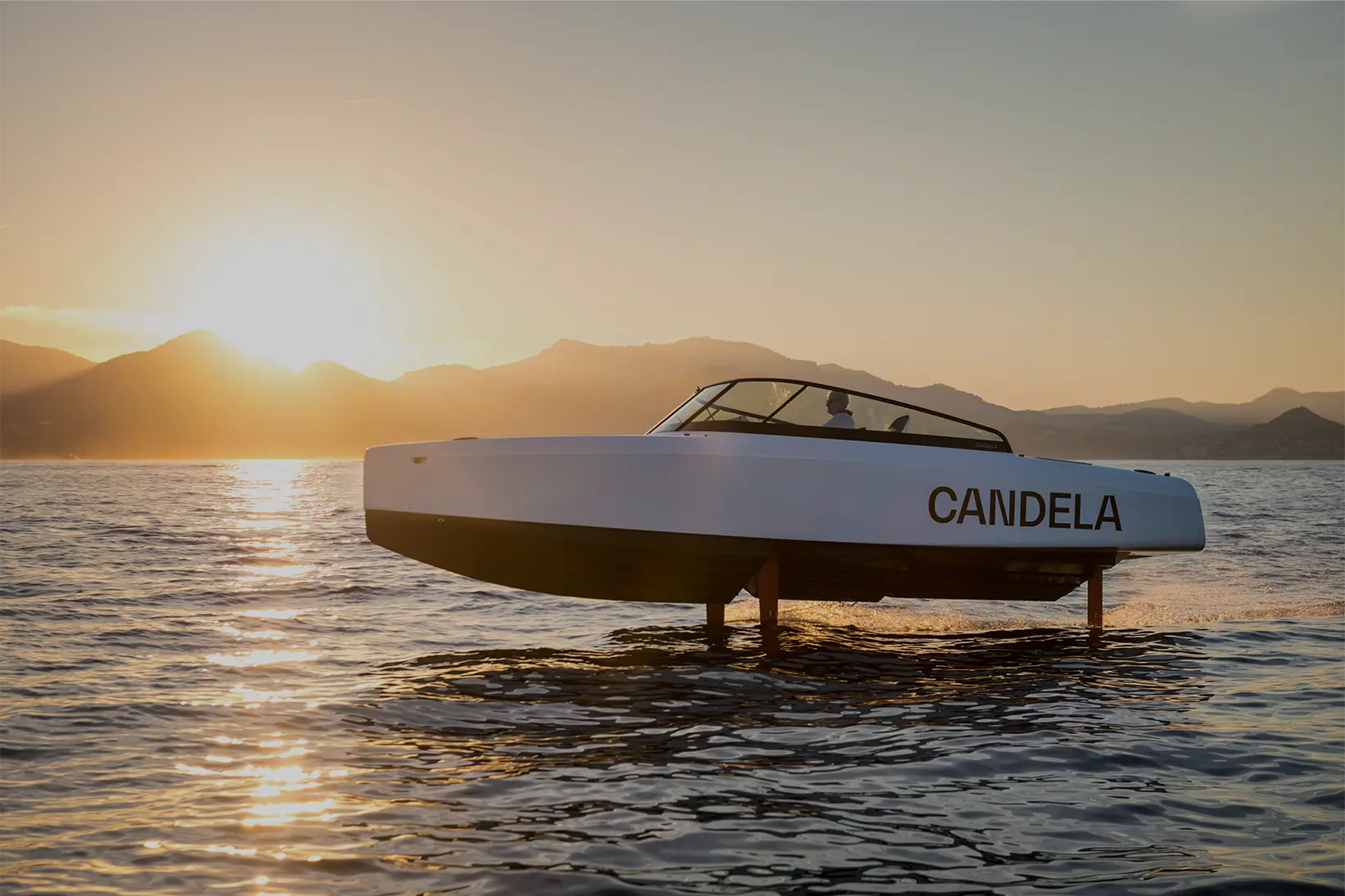Meet us
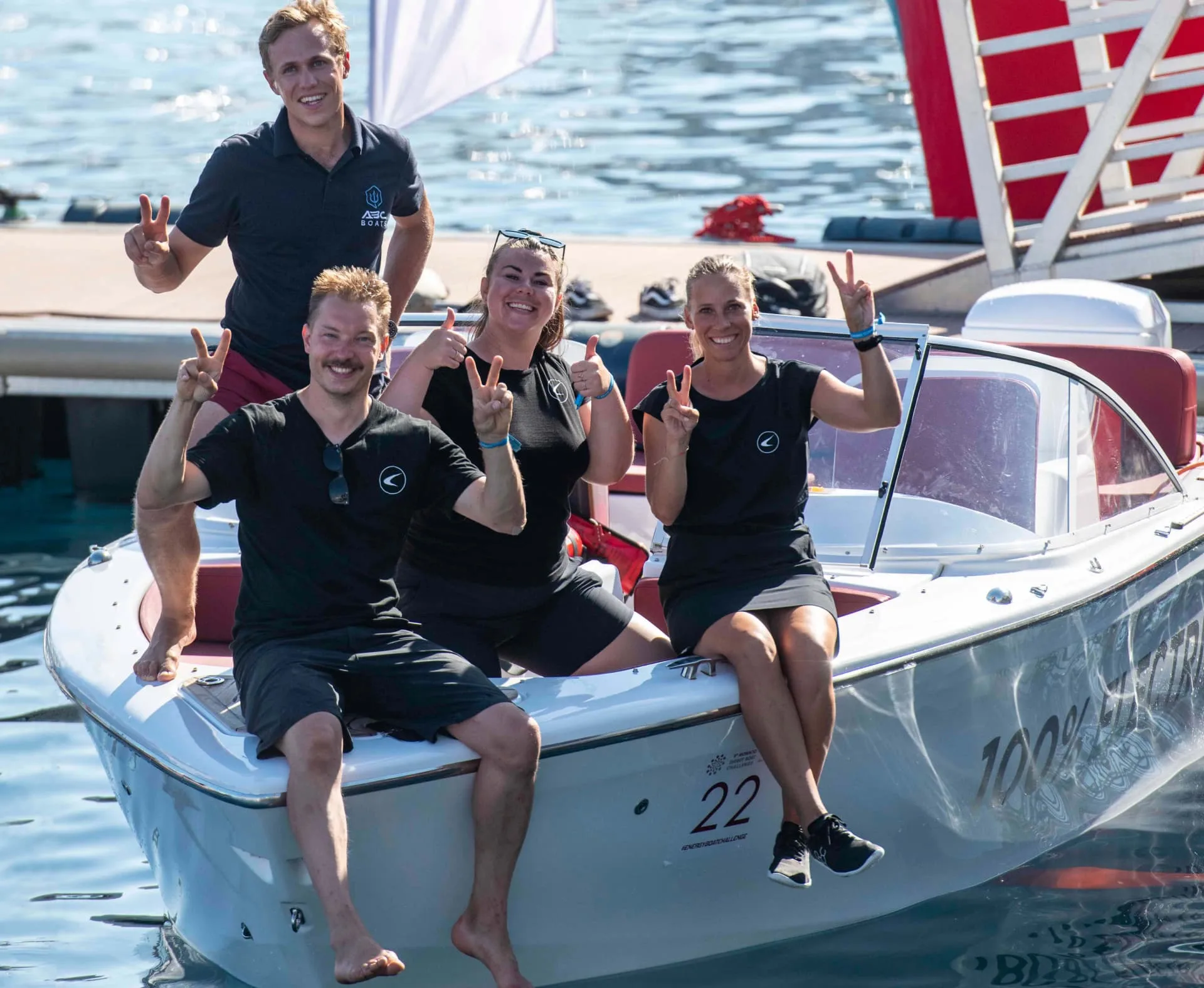
Locations
Where to find us
Events
A unique experience
Last August, we invited customers and stakeholders of Candela from all over the world to experience the C-8 and our production facilities in person.
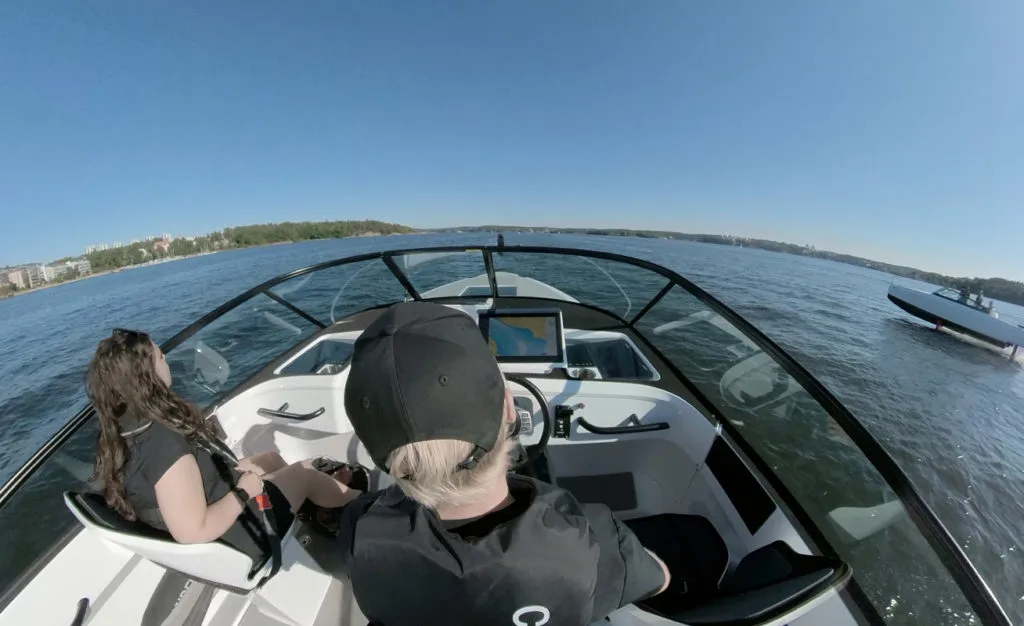

See our boats up close, go for a test ride, meet our staff, partners, and more.
Explore our events
Questions?
Here are the top five.
What is the range at high speed?
Real-world and validated range is 50 nautical miles at 22 knots. This means you can cruise for more than two hours without noise, emissions, or wake.
What are the charging options of a Candela P-12 Shuttle?
• DC: 175 kW, charging time 10-85 % approximately 45 min
How does Candela C-8 handle high waves and rough water?
Candela C-8’s seakeeping capabilities are second to none for its size. Instead of smashing into the waves, the C-8 flies over them. Thanks to the foils, the ride will be smoother than any conventional boat in moderate waves. Waves up to 1.1 meters pass just under the hull. In rougher conditions, C-8 operates like any other boat, the efficient planing hull and a “planing mode” means that you can operate the boat as you would any other, with the foils acting as a keel to provide extra stability.
What happens if you hit something in the water?
The foils are made of carbon fiber which makes them extremely strong. Hitting smaller debris has little to no effect. Hitting bigger objects – a log or rock for example – will result in the foil breaking at a designated breaking point. The breaking point is positioned to maximize protection of the hull from impact.
Which foil configuration and wing profile do you use?
All Candela vessels use fully submerged hydrofoils in a specific configuration. We employ one large, straight main foil close to the center of gravity and a smaller foil in the aft, attached to the propulsion unit. All Candela foil systems are retractable for trailing, storage and shallow water operation. As for the wing profile, in the pursuit of the perfect relation between efficiency and performance, we have designed our own proprietary shape for our foils. To offset the environmental footprint of the carbon fiber and batteries in our vessels, we have built them to last a long time. Moreover, we build light, meaning we need less carbon fiber and smaller batteries and end up using a lot less energy to transport passengers than our competitors.
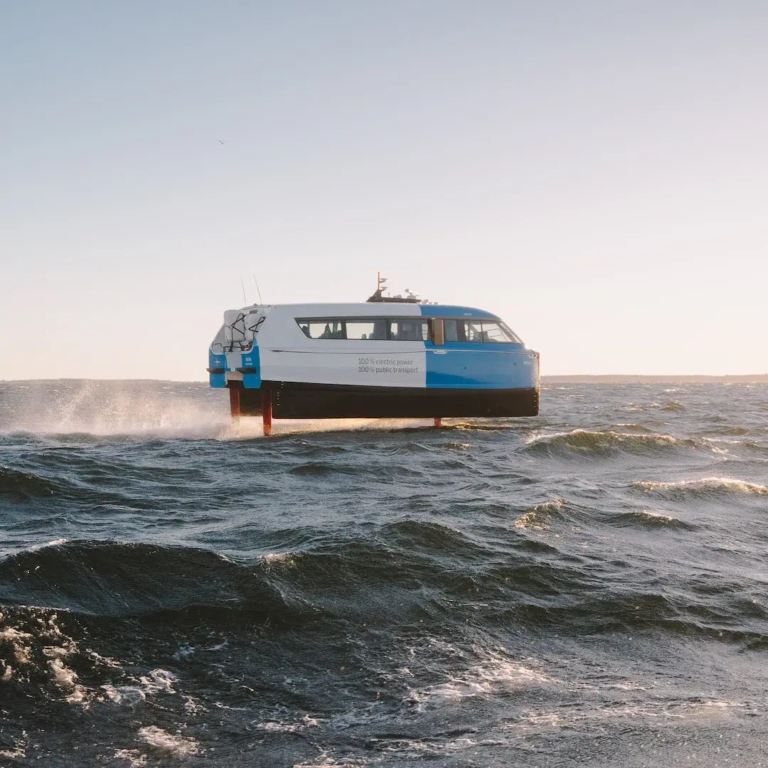 Overview
Overview 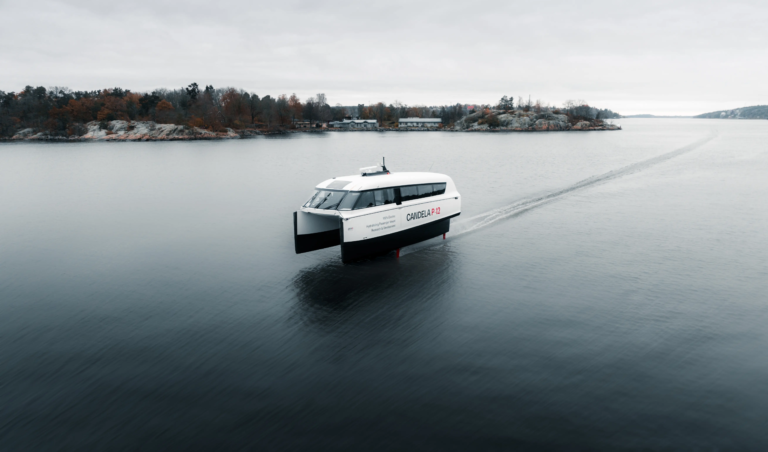 P-12
P-12 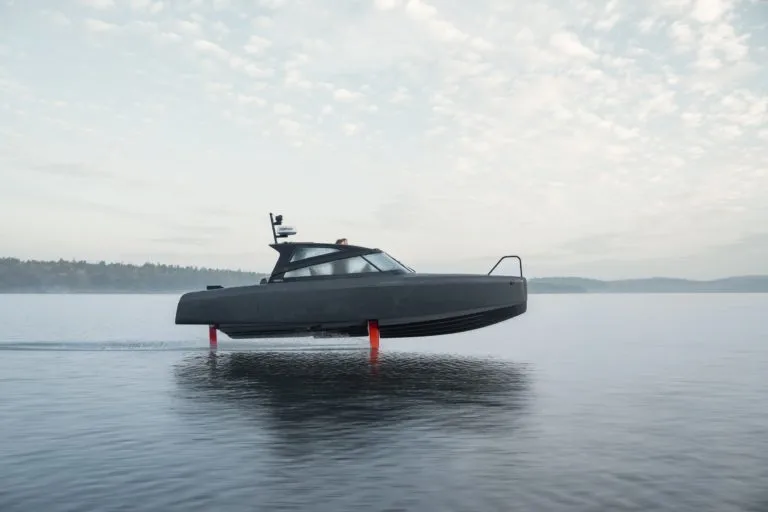 Overview
Overview 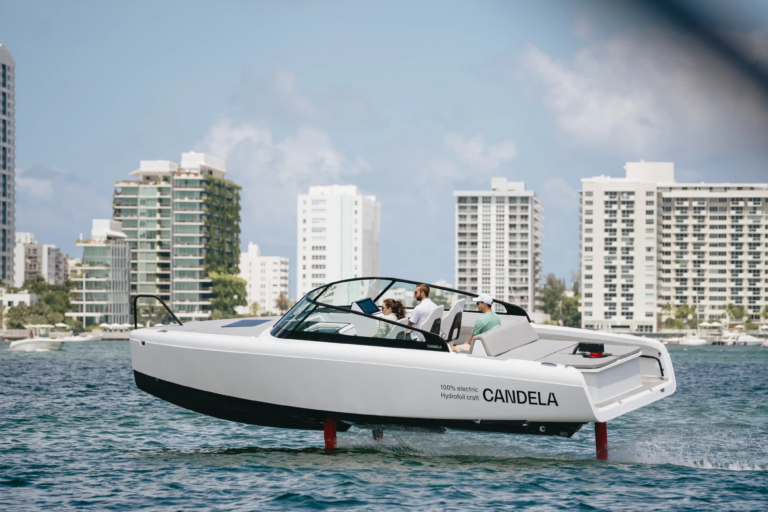 C-8
C-8 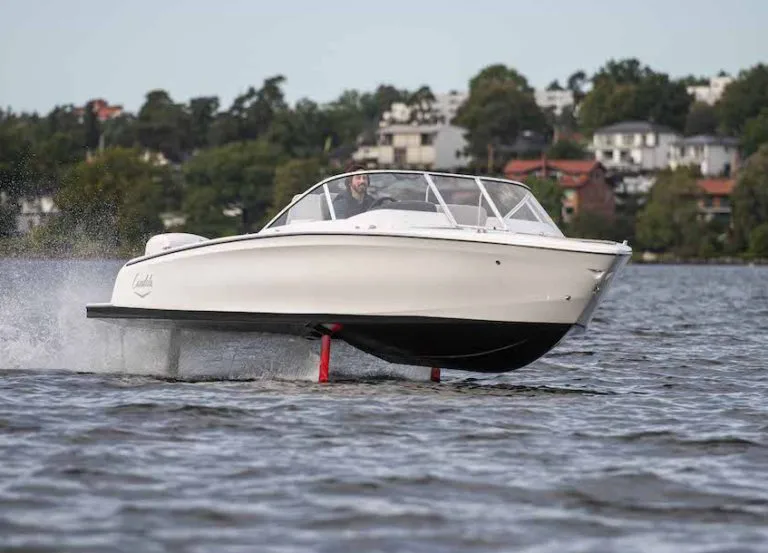 C-7
C-7 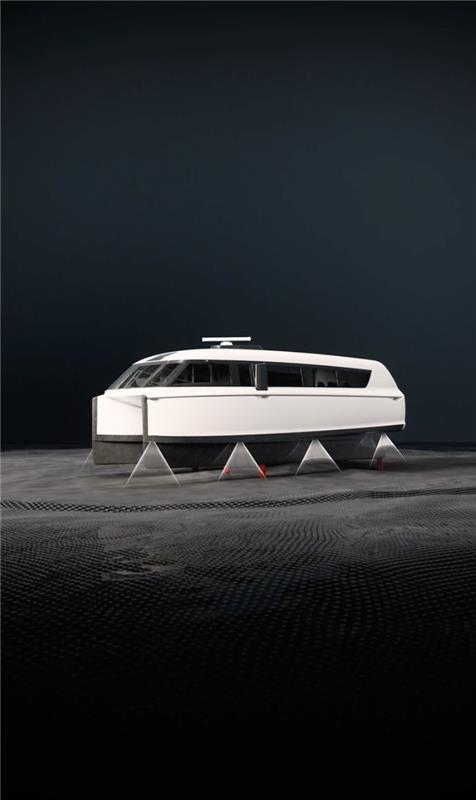 Overview
Overview 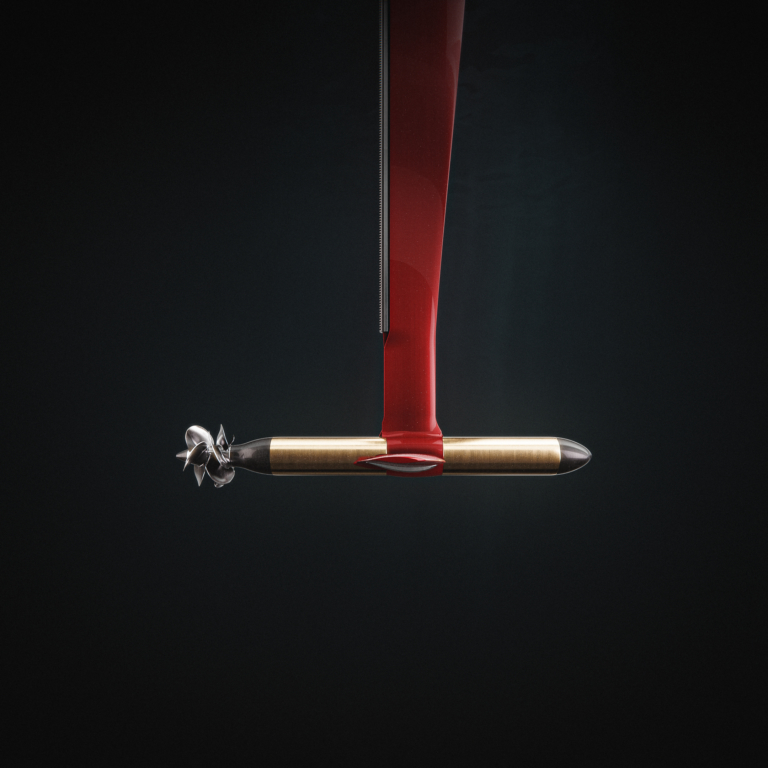 Electric motor
Electric motor 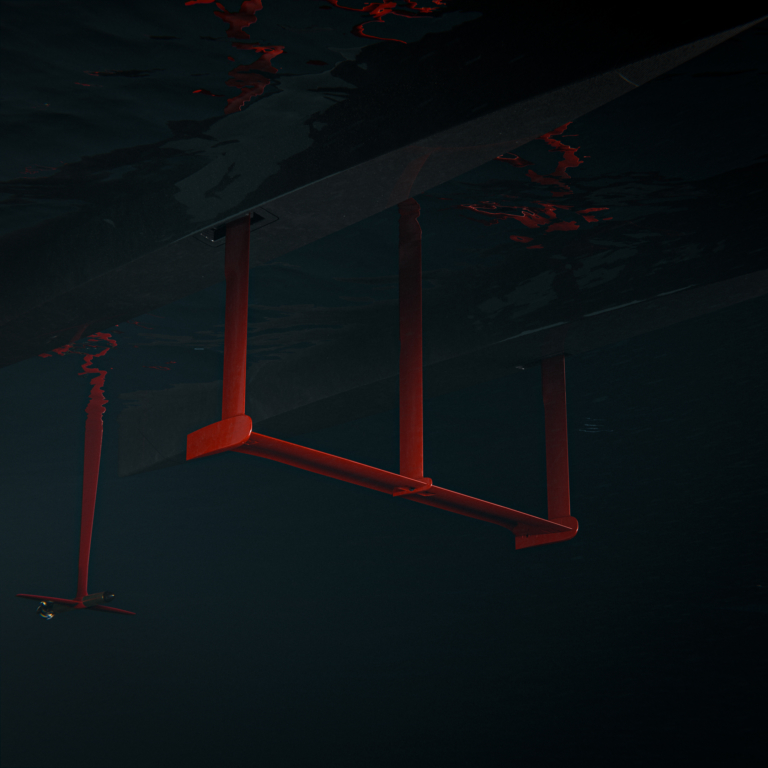 Foiling system
Foiling system 